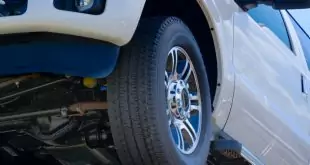Owning a car is a necessity for most people. It offers a convenient and adaptable mode of transportation that’ll get you to most places you need to go. However, cars don’t last forever. You’ll eventually have to start looking at new cars for sale, so here are ways to tell if it’s time for a new car.

1. Age of Your Current Car
Think about how long you’ve had your current car. Cars need more upkeep and repairs as they age, which can be costly, especially if the car’s parts are hard to find in the current market. Older vehicles also tend to use more fuel and produce more pollutants. Consider buying a new car if your car is always breaking down and necessitating costly repairs.
2. Think About Safety
Think about the safety features of your current car. There have been significant advancements in car safety technology over recent years. Newer models have safety features like blind-spot monitoring, lane departure warning, and autonomous emergency braking.
If your current vehicle doesn’t have these features, it’s time to start considering upgrading to a more recent model. The U.S. Department of Transportation reports more than 5,891,000 car accidents occur annually. A vehicle with modern safety features can reduce your risk of being involved in an accident.
3. Consider Repairs
If your current car is frequently in the garage for repairs, note that the costs can add up quickly. Think about the time and inconvenience caused by getting your car fixed. When you have to take time off work to address repair needs at a mechanic and spend hours waiting, it can disrupt your daily routine and make it difficult to get around.
Think about the availability of parts for your car. Finding replacement parts when something breaks or you’re involved in an accident can be difficult if you have an older car that’s no longer in production. Repairs can be even more costly and time-consuming, limiting your options for keeping your car running. On top of that, the automotive collision repair market is anticipated to grow at a 3.3% compound annual growth rate by 2026, according to Globe NewsWire, suggesting that repair costs will likely continue to rise. Buying a new car may be more cost-effective in the long run compared to paying for endless repairs.
4. Think About the Fuel Efficiency
Fuel efficiency is important when considering whether it’s time for a new car. Because older vehicles are often less fuel-efficient than newer ones, you could be paying more for gas than you need to. Modern vehicles typically have better fuel efficiency, which can result in long-term cost savings. Some newer cars also run on alternative fuels such as electricity, which is even more affordable than standard gasoline-powered vehicles.
5. Do Your Research
Once you’ve established that it’s time to buy a new car, start doing your research. Look at different car brands and models, and read reviews from other drivers to understand what to expect. The brand value of Mercedes-Benz was $23.36 billion in 2019. Luxury automobiles such as the Mercedes Benz are famous for their high-quality features and engineering but come at a higher price tag. When deciding, think about the upfront cost of the car and the cost of repairs and maintenance.
You should also factor in your lifestyle and driving habits when buying a car. A car with good fuel economy is the best option if you frequently travel long distances. If you have a family or often carry passengers, consider a larger car with more seating capacity. Consider your needs and the features that are most important to you in an automobile.
Your car should get you from point A to point B efficiently and safely. That’s not always possible with an old car. While the initial upfront cost of a new car can be high, the benefits you’ll enjoy will offset the burden.
 World inside pictures Collect and share the best ideas that make our life easier
World inside pictures Collect and share the best ideas that make our life easier








